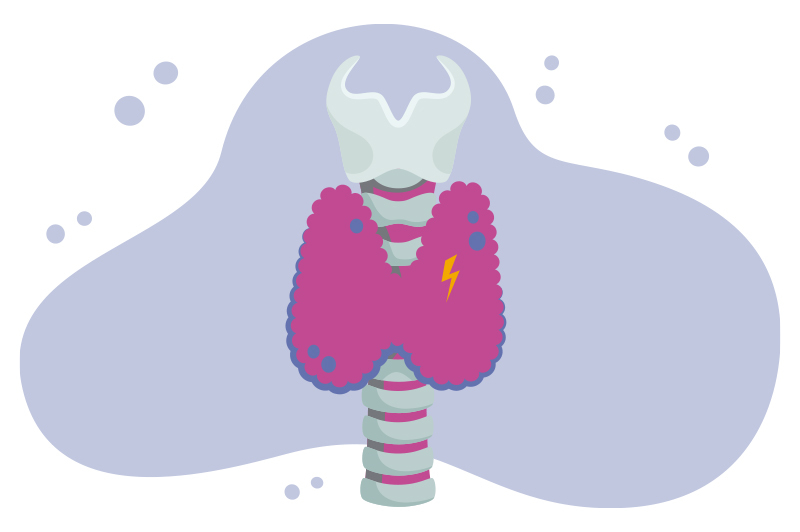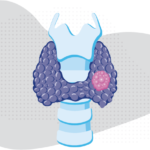Does thyroid cancer in children behave differently than in adults?

Once relatively uncommon, pediatric thyroid cancer is increasing among children and is now the most common type of cancer diagnosed in adolescents. As the oldest program of its kind in the U.S. — and one of the only centers dedicated to pediatric thyroid disease — Boston Children’s Thyroid Center is at the forefront of research on thyroid disease in children. Recent findings from the team continue to add to our understanding of these conditions.
No link found between BMI and pediatric thyroid cancer
Obesity is associated with thyroid cancer in adults, but is the same relationship present in children? Thyroid Center medical director Ari Wassner, MD, and his colleagues analyzed data from 362 pediatric patients with thyroid nodules who were seen at Boston Children’s between 1998 and 2020.
About a quarter of these patients were diagnosed with thyroid cancer. However, having a higher body mass index (BMI) was not associated with a diagnosis of thyroid cancer. On the other hand, the team found that patients with a higher BMI tended to have larger thyroid nodules and were more likely to undergo thyroid surgery.
“Although obesity has been associated with a number of cancers in adults, including thyroid cancer, this work helps make clear that body weight is not a significant factor in determining whether a thyroid nodule in a child might be cancerous,” explains Wassner. “However, increased body weight may make it more difficult for patients, families, or doctors to notice a thyroid nodule until it becomes relatively large, at which point it may be more likely to need surgery.”
Autoimmune thyroiditis elevates cancer risk in thyroid nodules
Autoimmune thyroiditis (also called Hashimoto’s thyroiditis) is the most common thyroid disorder in children, and patients with this condition are also more likely to have thyroid nodules. Among adult with thyroid nodules, autoimmune thyroiditis appears to increase the risk of having thyroid cancer, but it hasn’t been clear whether the same holds true for children.
To learn more, the Thyroid Center team reviewed the records of 385 pediatric patients with 458 thyroid nodules, 108 of which were cancerous. They found that autoimmune thyroiditis — which was present in 95 of the children studied — was independently associated with an increased risk of thyroid cancer, particular papillary thyroid carcinoma.
“These results suggest that knowing about the presence of autoimmune thyroiditis may help in evaluating children who have a known thyroid nodule,” says Wassner. “However, it’s important to remember that most children with autoimmune thyroiditis have a very low risk of thyroid cancer and do not need thyroid imaging unless a nodule is found on exam.”
These and other studies of thyroid nodules and cancer in children are important for understanding the ways in which these tumors behave similarly to or differently from those in adults, says Wassner. “This allows to us to continue to innovate and provide the best possible evaluation and treatment for these children.”
Learn more about the Thyroid Center or refer a patient.
Related Posts :
-

Thyroid nodules in children: When to refer
You’re doing a regular well-child check when you think you feel a lump in the front of the neck. ...
-

Charting a new path for pediatric thyroid cancer treatment
Thyroid cancer is the most common type of endocrine cancer in children. Because it is bilateral — affecting both sides (...
-

Experience matters: For Curtis's family, choosing a thyroid surgeon was simple
For many parents, being told their child needs a total thyroidectomy — surgical removal of the entire thyroid gland — comes ...
-

Study: Tool for thyroid nodule evaluation misses thyroid cancers in children
A thyroid nodule is a solid or fluid-filled lump that forms within the thyroid gland. Most thyroid nodules that develop ...





